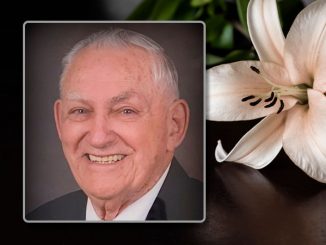
By John Maginnis
Oftentimes, the bright side of many of the year’s top political stories is that they are behind us, and the bad memories will fade with time.
Yet all the major news of Louisiana politics in 2010, for better or worse, have a to-be-continued attached.
One would hope the worst of the BP oil spill is behind us. But while the comeback of the coastal marshes and fisheries looks promising, the payback might be a letdown.
The lone flickering bright spot of the gulf disaster was a national focus on the long-term plight of Louisiana’s eroding coast. The hope was that the attention would grow to national resolve to fund massive coastal restoration projects, courtesy of federal fines on BP, estimated as high as $20 billion. Support was building in Washington for returning as much as 85 percent to the affected coastal states. And everyone knew Louisiana was hit hardest of all. Didn’t they?
As the year turns, however, the compensation picture looks as murky as Caminada Bay did in June. BP now claims data supports a far smaller estimate of oil released, and with that a potentially far smaller fine.
As for Louisiana’s share, the fact that damage payments to individuals and businesses in Florida have exceeded those from this state is an ominous sign of how Congress and the White House might agree to divide the penalty pie next year. And deficit hawks in the new Congress already are calling for keeping more than 15 percent in the federal treasury.
Meanwhile, the drilling moratorium has ended, but permitting has not yet resumed, leaving the new year to determine if the state’s oil exploration economy, which looked to rapid expansion when this year began, won’t instead be shrinking by 2011’s end.
Sen. David Vitter’s re-election was foreseen from the start of the year, but not his 2-1 victory margin, which he won by riding the GOP wave that swamped Democrats nationwide. His “serious sin” expunged politically, Vitter moves up in the opposition leadership in the Senate while he quietly resumes his quest to wield greater influence over the state Republican Party. At the rate Democrats are switching parties or quitting the Legislature, Republicans could win majorities in both houses even before the next session convenes.
The Census having determined that Louisiana will lose a congressional seat, the Legislature must decide which current congressman and metropolitan area draws the short straw. Due to the federal Voting Rights Act and the state’s one-third African-American population, the odd-out officeholder is bound to be Republican, which could be that party’s only big loss in the year ahead.
The spotlight cast on Gov. Bobby Jindal from the BP spill put him back on the national stage and, after the well was capped, on the road again. For all the out-of-state travel to campaign for Republican candidates, to fatten his own campaign account and to sell books, his absence did not make voters back home grow fonder. But his slide in approval ratings, to a still-respectable 55 percent, is nothing that $10 million (the current conservative estimate of his warchest) won’t take care of by election day next year. Then he’ll hit the national campaign trail again, not as a candidate, but as a major fundraiser and thus a power player in the GOP drive to 2012.
If there is one story line we know gets worse, it’s the state’s fiscal outlook for 2011, the dreaded year of the cliff. Legislators began realistic, though as yet inadequate, adjustments by allowing successive college tuition increases, which are shifting the financial burden from state government onto students and their parents. Next year will come plans for layoffs of faculty and staff, with effects on higher education and local economies undetermined, but surely not good.
Jindal’s book describes his transformation of the state’s Medicaid system as a done deal, but the alleged parties to it – – legislators, doctors, hospitals and a quarter of the population – – are still waiting for the details, and are unhappy with what they have seen so far. Given an inevitable new round of rate cuts affecting providers and, by extension, patients, the coming struggle over the shape of public healthcare could end that story differently than how the governor has written it. In terms of effects on people’s lives, it could be the major story of the year ahead.




Be the first to comment